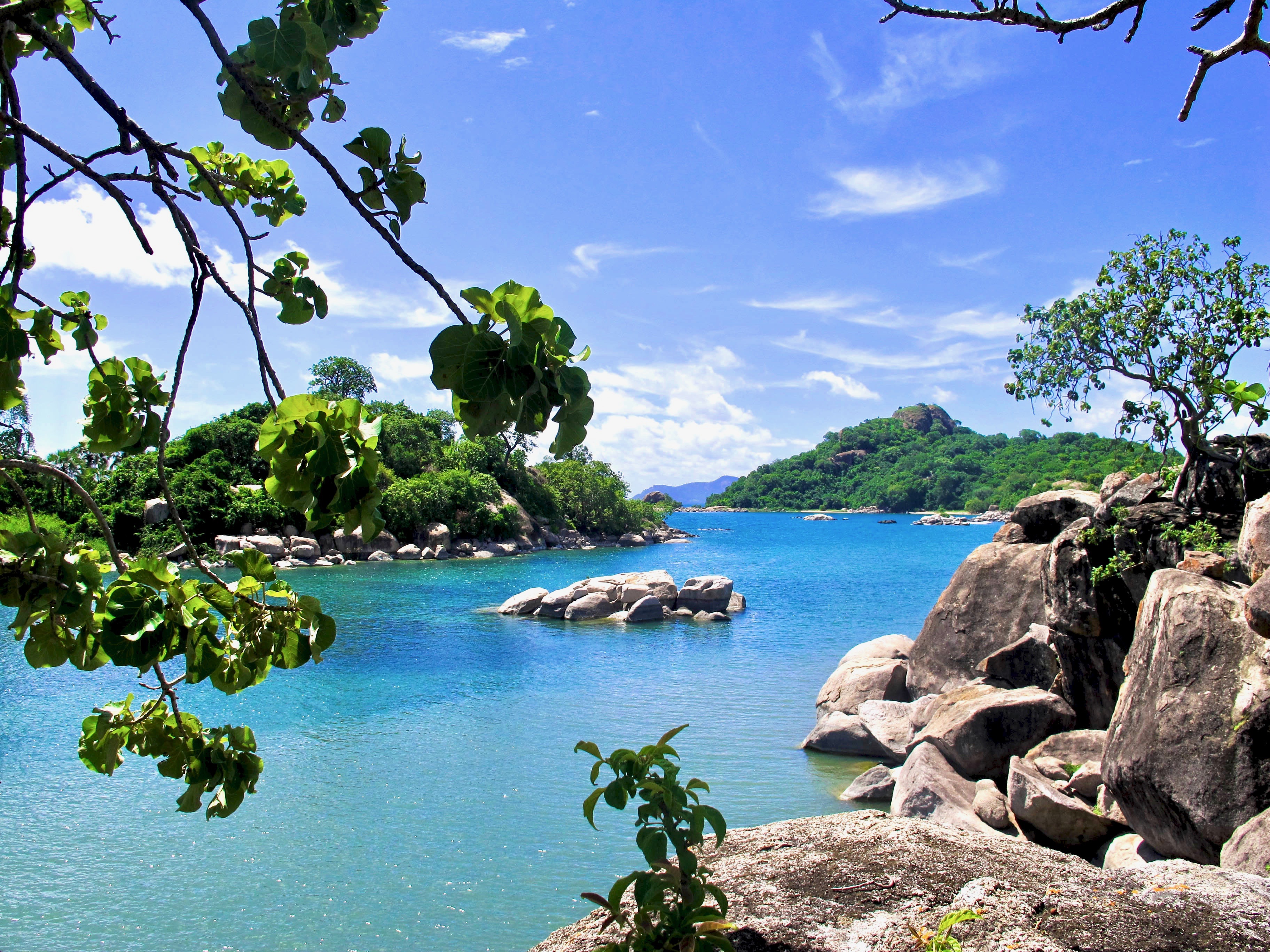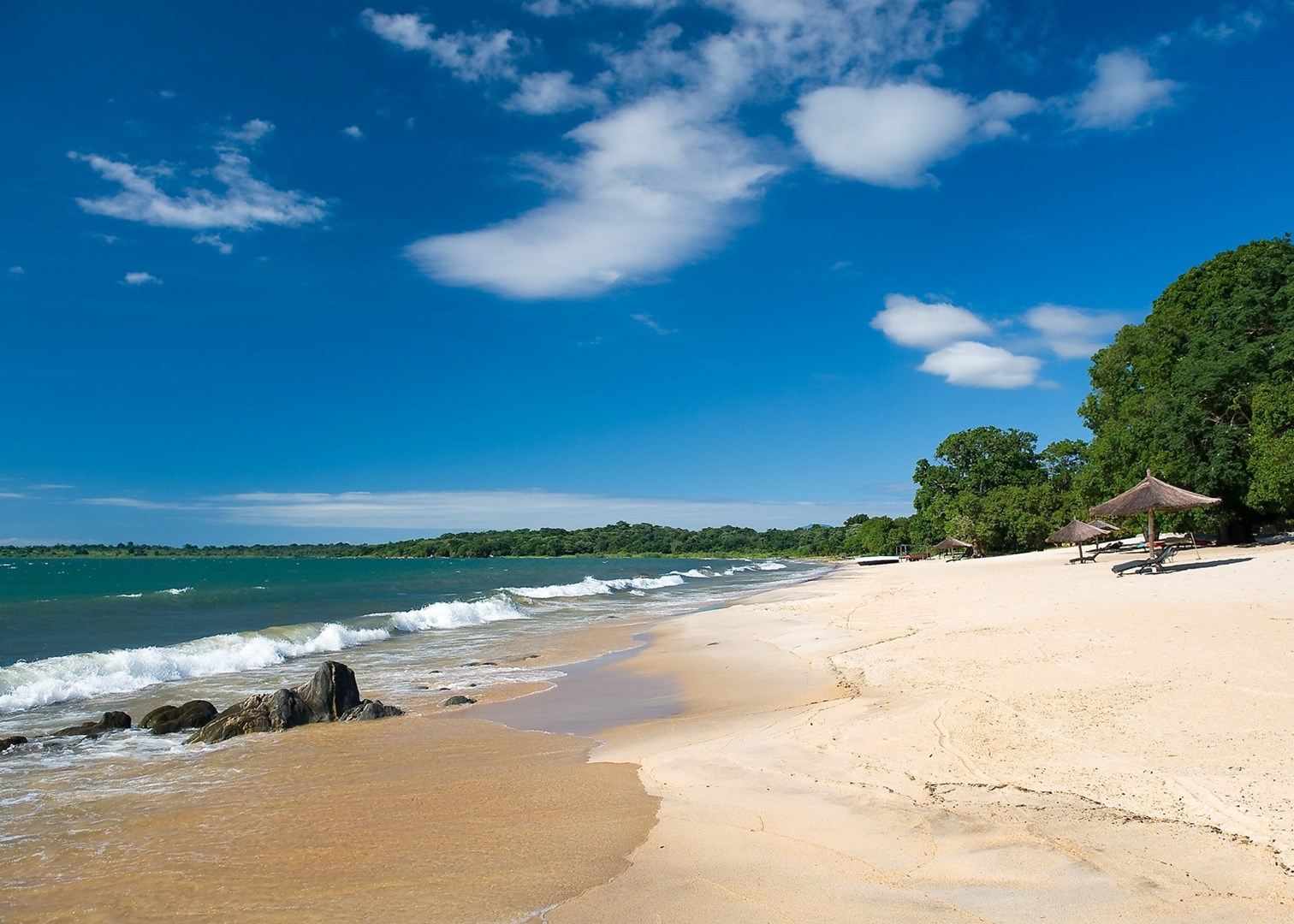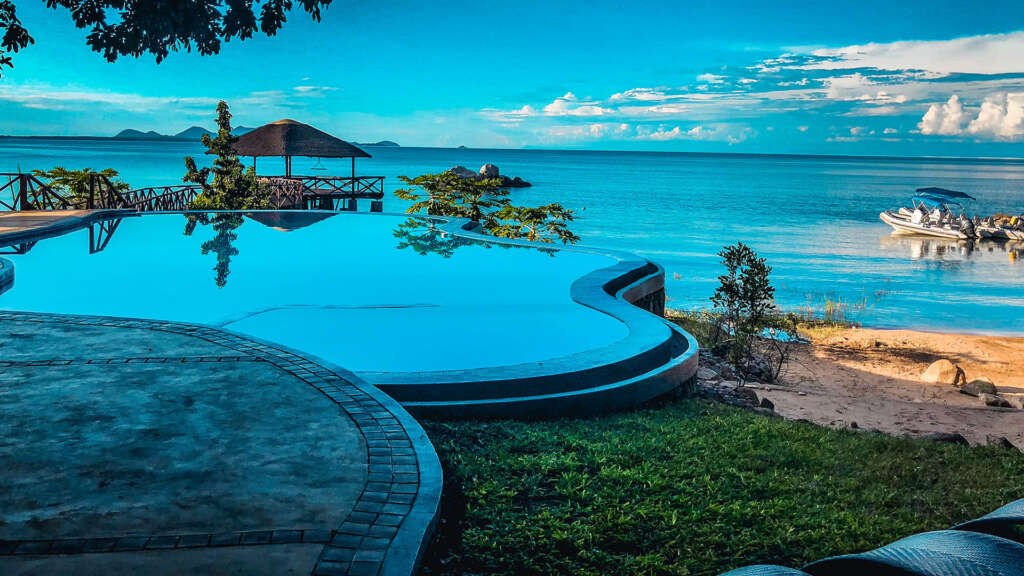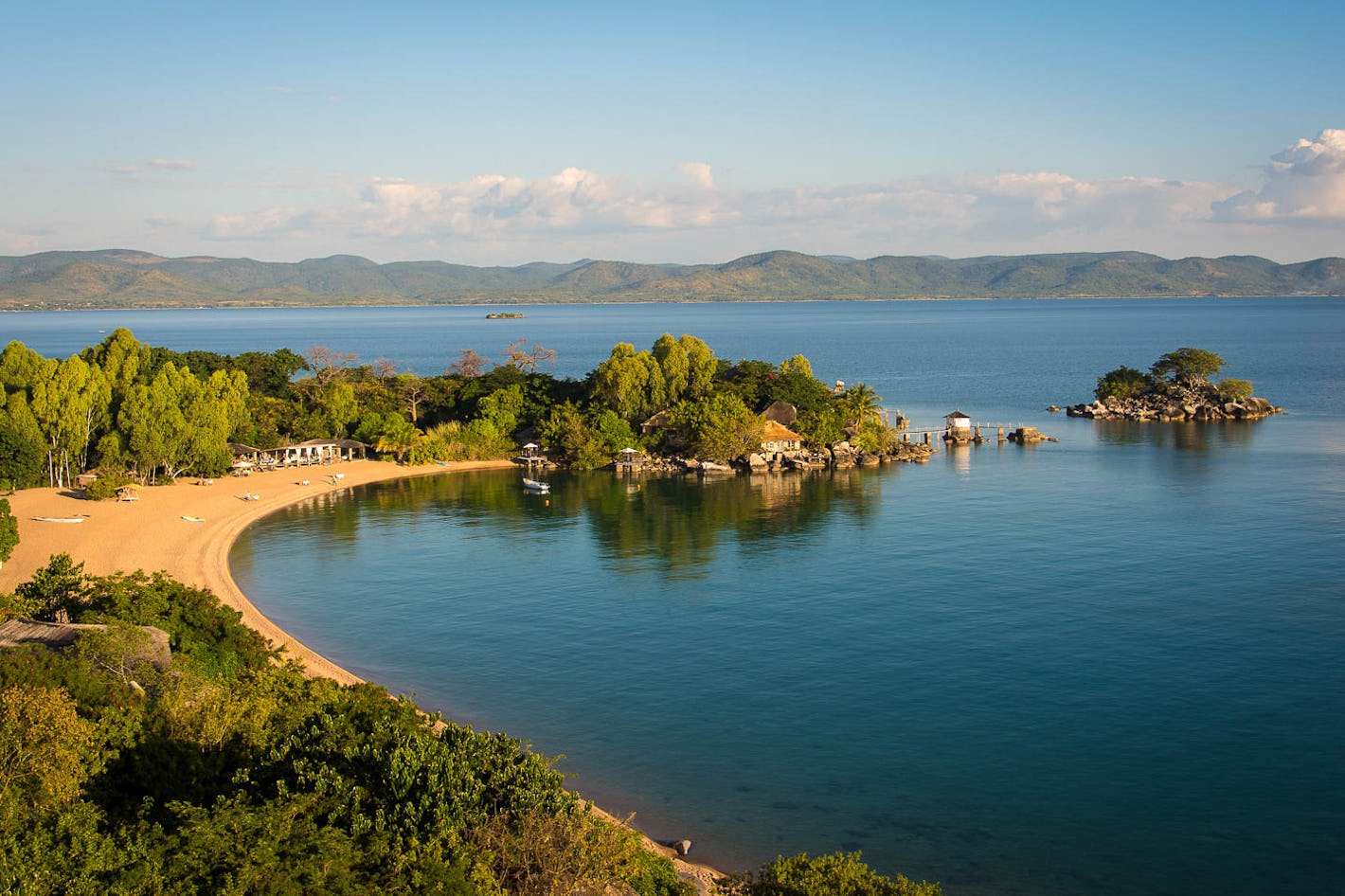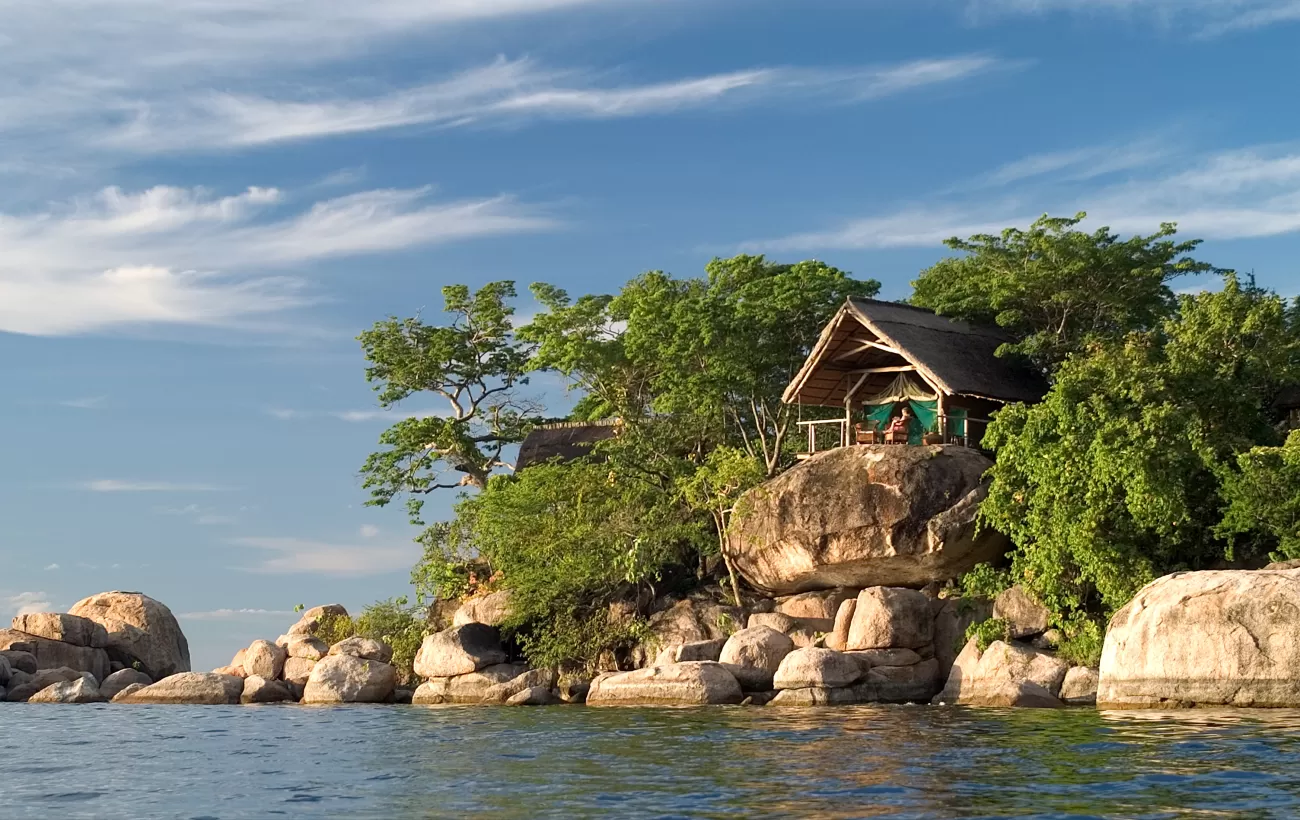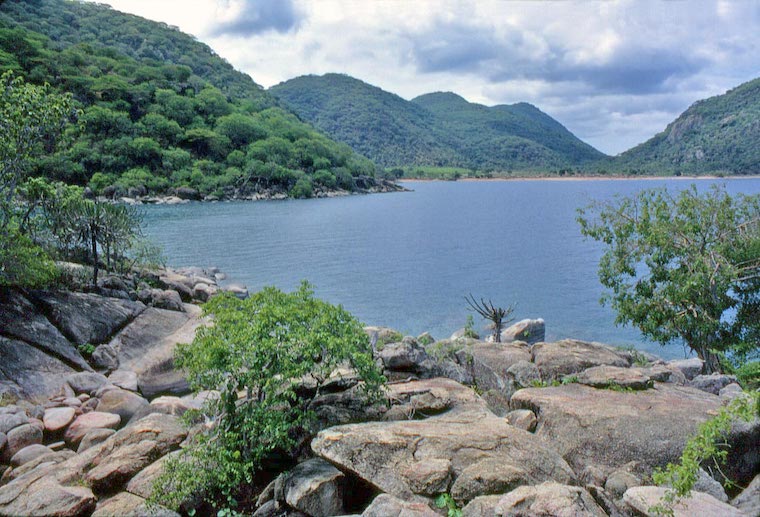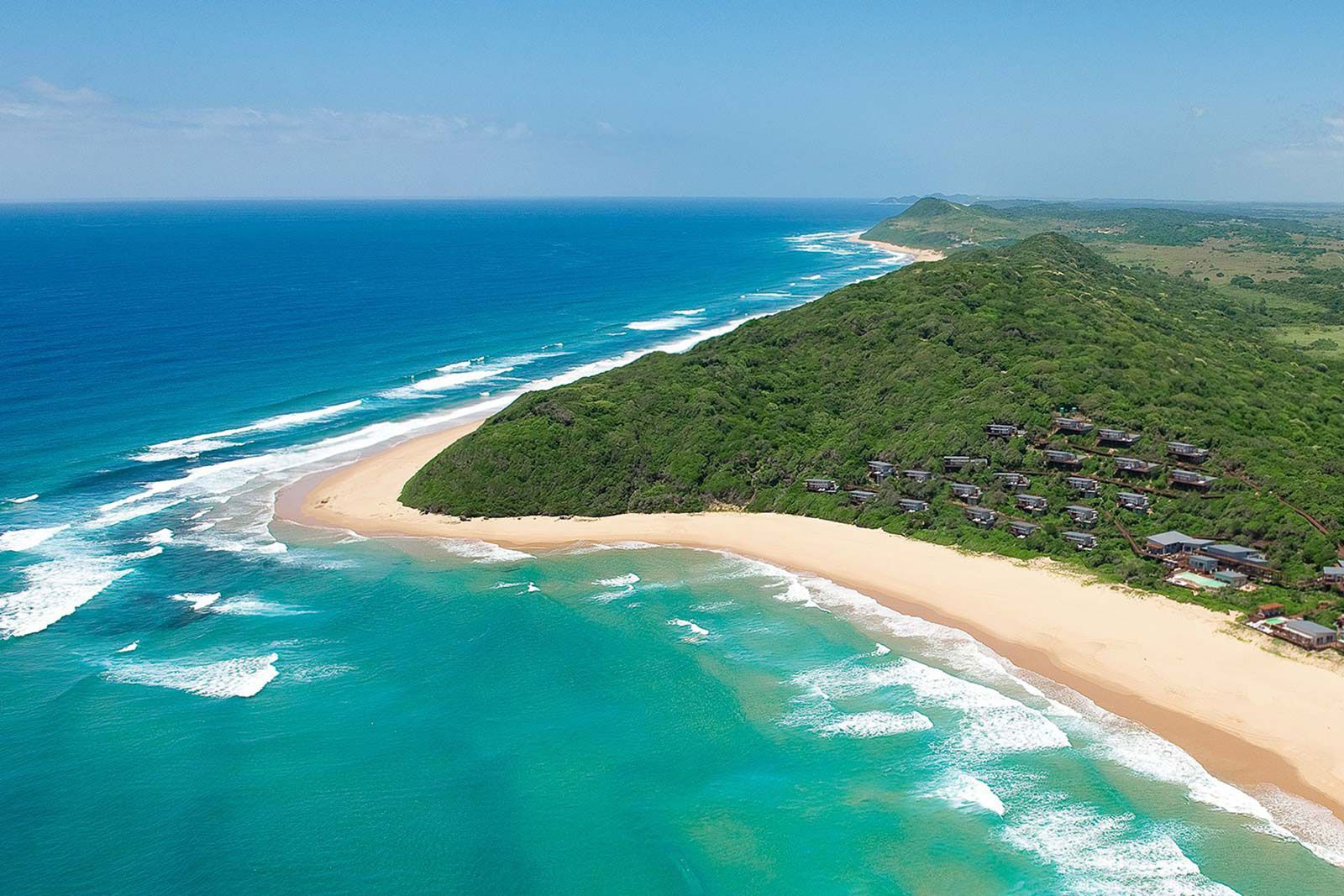Views Of Lake Malawi
About
location:
Bordered by Malawi, Mozambique and Tanzania
Lake Malawi is located in southeastern Africa, between the countries of Malawi, Mozambique, and Tanzania. It's over 600 kilometers long and covers an area of more than 29,000 square kilometers. The lake has a maximum depth of over 700 meters, making it one of the deepest lakes in Africa.
It's also one of the oldest lakes in the world, dating back over 25 million years. It's also home to over 500 species of fish, including colorful orchids, many of which are endemic to the lake.
Lake Malawi is also one of the largest lakes in Africa and it's known for its crystal-clear waters and diverse wildlife. It's a popular tourist destination, especially for snorkeling and scuba diving. There are also a number of islands in the lake, some of which are inhabited by locals.
Lake Malawi is also known for its culture. There are many villages around the lake that are home to local tribes, including the Yao, Nyanja, and Chewa. The people who live around the lake have a rich culture, with a strong emphasis on music and dance. They're also known for their intricate basketry and traditional crafts. If you visit Lake Malawi, you'll have the chance to experience this vibrant culture firsthand.
Lake Malawi also known as the "Lake of Stars" got this name because of the thousands of stars that can be seen reflected in the water at night.
Things to know before travelling to Lake Malawi
This article is a tip of the iceberg but will equip you with the "Absolute Need to Knows" for Lake Malawi.
How to get there?
If you're coming from outside Malawi, the easiest way to get to Lake Malawi is to fly into Lilongwe International Airport or Blantyre International Airport. Once you arrive, you can take a bus, minibus, or taxi to the lakeshore.
Another option is to fly into Nampula, Mozambique and then take a bus or minibus to the lake. If you're looking for the most direct route, your best bet is to fly into Lilongwe and then take a bus or minibus to the lake.
About the weather
The weather in Lake Malawi is tropical, with warm temperatures year-round. The average temperature in the lake area is around 25 degrees Celsius (77 degrees Fahrenheit). During the dry season, which runs from May to October, the days are hot and sunny, with cooler nights.
In the rainy season, which runs from November to April, the days are hot and humid, with heavy rains in the afternoon. If you're planning a trip to Lake Malawi, it's important to keep the weather in mind.
Medical matters that affect your visit.
There are a few medical matters to be aware of when visiting Lake Malawi.
Malaria
Malaria is a risk in the area, so it's important to take preventative measures, such as taking anti-malarial medication and using insect repellent.
Water-borne Diseases
There is a risk of water-borne illnesses, such as diarrhea and typhoid. To reduce your risk, only drink bottled water and avoid eating raw fruits and vegetables. Also, be sure to wash your hands frequently.
In addition to the medical matters mentioned above, there are a few other things to keep in mind:
- There is a risk of schistosomiasis, a parasitic infection, in Lake Malawi. To avoid this, avoid swimming or wading in the lake.
- There is a risk of rabies in Malawi, so it's important to avoid contact with animals.
- There is a risk of zoonotic diseases, which are diseases that can be transmitted from animals to humans. These include brucellosis, leptospirosis, and Q fever.
- If you're planning on going on safari while in Malawi, be sure to get vaccinated for yellow fever.
- Lastly, it's important to be up-to-date on all of your routine vaccinations.
By being aware of these medical matters, you can help to ensure that your trip to Lake Malawi is safe and enjoyable.
About the locals
Lake Malawi is home to a diverse group of people, including the Yao, the Nyanja, the Ngoni, the Tumbuka, and the Chewa. Each of these groups has its own unique history and culture. The Yao are a matrilineal people who are known for their skills in fishing and farming.
The Nyanja are a Bantu people who are known for their agricultural expertise. The Ngoni are a people of mixed origin who have a warrior culture. The Tumbuka are a people of mixed ethnic backgrounds who have a strong musical tradition.
The Chewa are a people with a strong tradition of art, music, and dance. The people of Lake Malawi are a friendly and welcoming group, and are proud of their culture and traditions. They are also known for their generosity and hospitality, and will often go out of their way to help visitors.
It is important to note that some of the traditional customs and practices may be different from what visitors are used to, but it is important to be respectful of these differences.
Cultural etiquettes at Lake Malawi
The people of Lake Malawi, known as the "Lake of Stars", are mostly subsistence farmers, who rely on agriculture to make a living. The most common crops grown are maize, cassava, millet, and beans.
The people of Lake Malawi are known for their friendliness and hospitality, and it is common for visitors to be invited to a local village to share a meal. It is considered rude to decline such an invitation, and visitors are expected to remove their shoes before entering a home. it is customary to bring a gift for the host, such as a small amount of cash, food, or clothing.
It is also considered rude to use the left hand to eat or drink, as the left hand is traditionally used for toilet hygiene. Additionally, it is important to dress modestly, as showing too much skin is considered disrespectful.
Women should avoid wearing shorts or short skirts, and men should avoid wearing sleeveless shirts. Finally, visitors are expected to be respectful of religious beliefs, and should avoid making any comments that could be construed as offensive.
Dress code at Lake Malawi
When it comes to dress code in Lake Malawi, it's important to be respectful of the local culture. In general, conservative, modest clothing is best. Shorts, t-shirts, and skirts or dresses that cover the knees are appropriate for both men and women. Avoid revealing or tight-fitting clothing.
In rural areas, it's best to avoid wearing shorts or sleeveless tops, and men should avoid wearing tank tops. At the beach, it's acceptable to wear a swimsuit or a cover-up, but avoid wearing a bikini in a public area.
Safety at Lake Malawi
Lake Malawi is considered a safe destination for travelers, although there are some potential safety concerns. The most common safety issue is petty crime, such as pickpocketing and theft from vehicles.
It is important to be aware of your surroundings and to take precautions, such as keeping your belongings close and avoiding flashing expensive items. It is also important to be mindful of local laws and regulations, such as the need for a valid visa and the laws regarding alcohol consumption.
Additionally, there have been reports of people getting sick from eating contaminated food or drinking unclean water.
Language and communication at Lake Malawi
The main mode of communication at Lake Malawi is English, which is spoken by a large portion of the population. However, there are also several local languages spoken in the area, such as Chichewa, Chiyao, and Tumbuka.
Most people are multilingual and can speak a few of these languages, in addition to English. Because of the diversity of languages spoken, it is not uncommon for people to use a mix of different languages when communicating. This is known as "code-switching", and it is a common form of communication in the region.
Vital Information on Money Matters
In terms of money matters, the Malawian kwacha is the official currency of Malawi, and it's available in denominations of 10, 20, 50, 100, and 200 kwacha. US dollars are also accepted in some places, but it's best to have kwacha for smaller transactions.
You can get kwacha at the airport or at banks and ATMs in major cities. Most hotels, restaurants, and shops accept credit cards, but smaller businesses may only accept cash. Be sure to bring small bills, as change is often difficult to come by.
Fun Things To Do At The lake Malawi
Here are some fun things to do while visiting Lake Malawi:
- Take a sunset cruise on the lake.
- Go snorkeling or scuba diving in the crystal-clear waters.
- Take a boat ride to Likoma Island, where you can visit a 12th-century cathedral.
- Spend a day at Cape Maclear, a scenic beach town on the shore of Lake Malawi.
- Visit the Livingstonia Mission, a historic mission station founded by David Livingstone.
- Sample the local cuisine, including nsima, nyama choma (grilled meat), and chambo (a local fish).
- Take a language class and learn a few words in Chichewa, the local language.
- Relax on the beach and soak up the sun.
- Take a dip in the lake and cool off on a hot day.
With so many fun things to do, you'll never be bored while visiting Lake Malawi.
Who can travel to Lake Malawi?
Anyone can travel to Lake Malawi, regardless of their age, race, or gender. However, there are some restrictions on travelers from certain countries. For example, travelers from countries like North Korea, Eritrea, and Somalia need to apply for a visa in advance.
Additionally, travelers from countries like Iraq, Afghanistan, and Syria may face additional security screening. It's best to check with the Malawian embassy or consulate in your country for the most up-to-date information on travel restrictions.
Travel Documents
You will need a valid passport and visa to enter Malawi. Make sure your passport is valid for at least six months after your travel date and check if you need to obtain a visa before traveling.
What time of the year is best to visit?
The best time to visit Lake Malawi is during the dry season, from May to October. During this time, the weather is warm and sunny, and there is less rainfall. The water in the lake is also clearer during this time, making it perfect for snorkeling and diving.
Additionally, most of the tourist attractions are open during the dry season, so you'll have plenty to do. Avoid visiting during the rainy season, from November to April, when the roads can be difficult to navigate and many of the tourist attractions are closed.
Packing Essentials For Your Trip
Lightweight breathable clothing
You'll want to pack lightweight, loose-fitting clothing that will keep you cool in the warm weather. Avoid packing heavy or tight-fitting clothing, as it can be uncomfortable in the heat.
Sunscreen and hat
The sun can be intense in Lake Malawi, so be sure to pack sunscreen and a hat to protect yourself from the sun.
Insect repellent
Mosquitoes and other insects can be a nuisance in Lake Malawi, so be sure to pack insect repellent.
Comfortable shoes
You'll be doing a lot of walking around, so be sure to pack comfortable shoes. Flip-flops or sandals are great for the beach, but you'll also want to pack a pair of sturdy walking shoes.
Reusable water bottle
Staying hydrated is essential in the warm weather, so be sure to pack a reusable water bottle that you can fill up throughout the day.
Travel adapter
The electricity in Malawi uses a different voltage than in many other countries, so be sure to pack a travel adapter to ensure your electronics will work.
A good book or two
Lake Malawi is the perfect place to relax and take in the beautiful scenery. Pack a book or two to read while lounging on the beach or at your hotel.
An open mind
Most importantly, bring an open mind and a sense of adventure. Lake Malawi is a unique place with a fascinating culture and history. Be prepared to try new things and to embrace the local culture.
With these packing essentials, you'll be ready for an unforgettable trip to Lake Malawi.
view map
Book Flight ticket
If this widget is not showing try reloading the page
The flight search result will be provided in a new tab
Lilongwe international airport will be a good destination if you are coming from outside Malawi
Book Hotel
If this widget is not showing try reloading the page
The hotel search result will be provided in a new tab
Input Senga, Malawi as the city name to search and compare hotel prices
You can book tours at hotels upon arrival.
